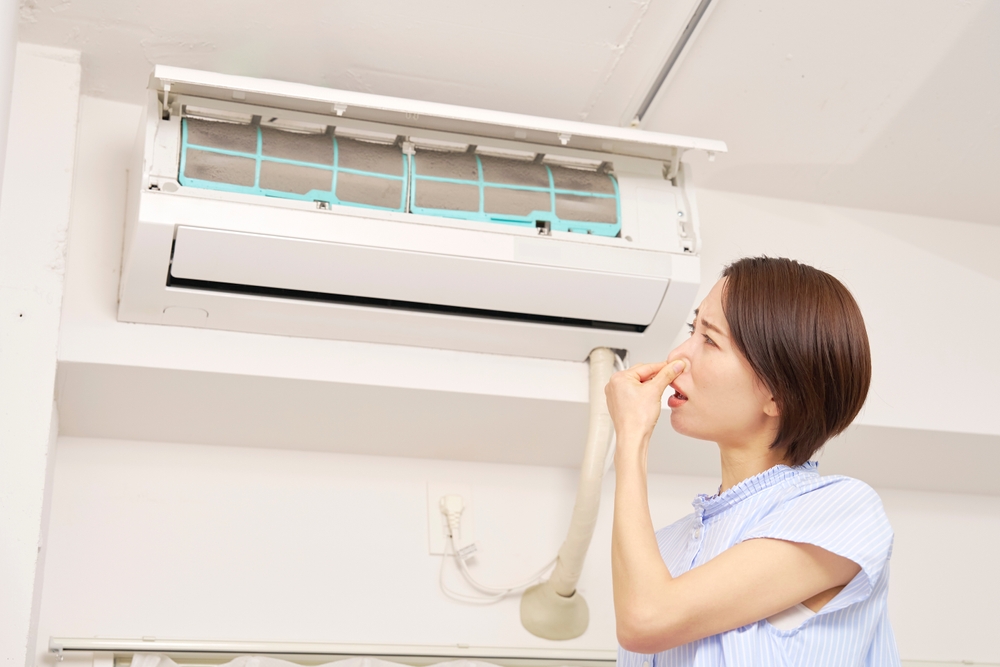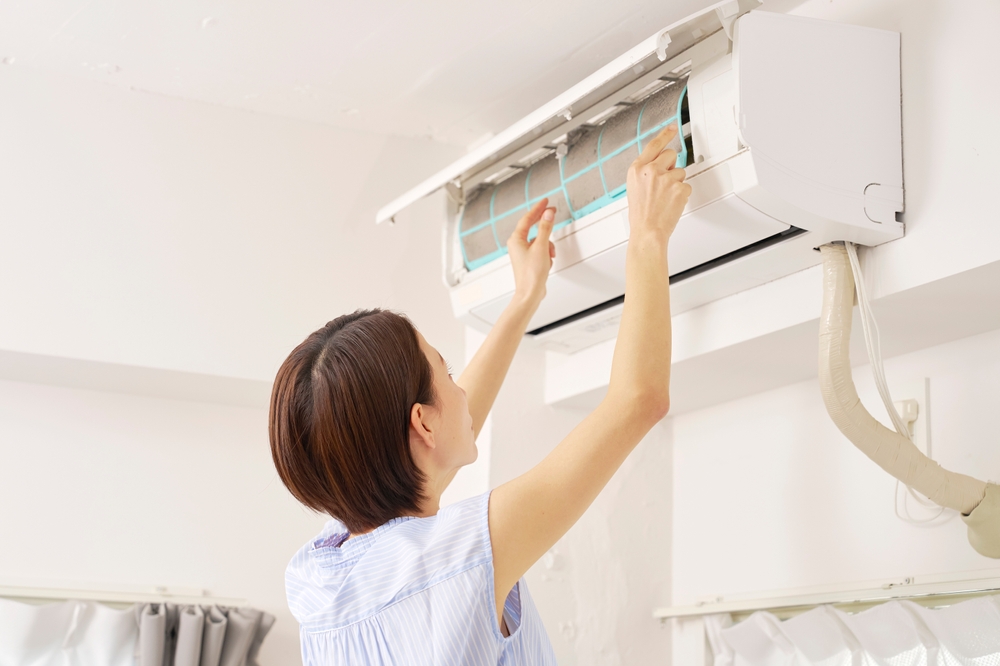How to Prevent Mould Build-Up in Your Air Conditioner This Winter
As the chill of winter settles across Illawarra, the demand for heating systems, including air conditioners with heating functions, spikes significantly. While these units provide essential warmth and comfort, they also create the perfect environment for mould growth if not maintained properly. Mould build-up in air conditioners not only reduces system efficiency but can also cause health problems like allergies and respiratory issues. At Ben Air Conditioning, we're dedicated to helping you maintain a clean, healthy indoor environment this winter.
This guide will explore practical strategies to prevent mould in your air conditioning in Illawarra. We’ll cover everything from regular cleaning and inspections to humidity control and using quality air filters. Plus, we’ll explain the benefits of professional servicing, which can extend the life and performance of your unit. Let’s ensure your air conditioner stays mould-free throughout the season, so you can enjoy a warm and healthy home.

Why Mould Thrives in Air Conditioners During Winter
As the temperature drops, many Illawarra residents might assume their air conditioners are only useful for the hot summer months. However, this winter downtime can inadvertently create the perfect environment for mould growth inside your air conditioner. By understanding why mould thrives in these conditions, you can take proactive steps to prevent mould and maintain a comfortable living space.
The Role of Moisture and Heat in Encouraging Mould Growth
Mould spores are constantly present in the air. All they need to grow are three things: moisture, warmth, and a food source (which can be found in dust or organic debris). During winter, these factors can easily align in your air conditioning system:
- Moisture Accumulation: Even when not in use, air conditioners can trap moisture. Temperature differences between the inside of your home and the outside environment cause condensation inside the unit. Any residual moisture left behind from previous cooling cycles can also encourage mould growth.
- Heat Sources: Some air conditioners have heating functions, which warm up the unit and create pockets of warmth. When combined with trapped moisture, this warmth can create the perfect environment for mould to thrive.
How Infrequent Use and Poor Airflow Worsen the Problem
When your air conditioner isn’t used regularly during winter, it can exacerbate the mould problem. Here’s how:
- Stagnant Air: Without regular operation, air circulation inside the system slows down. Reduced airflow gives moisture more time to settle, creating an ideal environment for mould growth.
- Dust and Debris Build-up: When the system isn’t running, dust and debris accumulate inside. This can feed mould spores and clog filters, ducts, and vents, further reducing airflow and increasing moisture levels.
- Neglected Maintenance: People often forget about air conditioning maintenance during winter, which leads to unnoticed mould growth in hidden parts of the system.
What Mould Can Do to Your Health, Comfort, and Air Quality
Mould build-up isn’t just a mechanical problem, it can severely impact your health and comfort:
- Health Risks: Mould exposure can cause a range of health issues, especially for people with allergies, asthma, or weakened immune systems. Mould spores can trigger respiratory issues, skin irritation, and allergic reactions. Prolonged exposure can worsen these symptoms.
- Decreased Comfort: Mould often leads to musty, unpleasant odours, making your indoor environment less inviting. This can detract from the warmth and comfort you seek during the colder months.
- Compromised Air Quality: Mould spores can spread throughout your home via the air conditioning system, negatively affecting indoor air quality. This not only harms your health but can also damage furniture, walls, and other surfaces in your property.
By understanding these issues, you can take proactive steps to prevent mould growth and maintain a healthy, comfortable living space during winter.

Proven Strategies to Prevent Mould Build-Up in Winter
The winter months in Illawarra provide an ideal environment for mould growth in your air conditioning system, but with the right precautions, you can keep your unit functioning optimally. Here are some proven strategies to prevent mould build-up:
Clean or Replace Your Air Filters Frequently
Air filters are your first line of defence against mould and airborne particles. Over time, they can get clogged with dust and debris, providing a perfect breeding ground for mould. To keep your system clean:
- Regular Inspection and Cleaning: Check your air filters at least once a month. If they’re dirty or clogged, clean them according to the manufacturer's instructions. For reusable filters, wash them with mild detergent and warm water.
- Timely Replacement: If your system uses disposable filters, replace them every 1-3 months. It’s easy to forget about filter maintenance during winter, but sticking to a regular replacement schedule ensures your system runs efficiently.
Use Dry or Fan Mode to Flush Out Condensation
Excess moisture is a key contributor to mould growth. Combat this by using your air conditioner's settings:
- Dry Mode: If your air conditioner has a "dry" mode, use it periodically to reduce moisture in the air. This mode helps control humidity levels without significantly cooling the room.
- Fan Mode: Running the fan mode for a few hours each week helps circulate air and dry out any residual moisture inside the system.
Ensure Proper Drainage to Prevent Water Build-Up
Efficient drainage is crucial in preventing mould. Follow these steps to keep your system in top shape:
- Inspect Drainage Components: Regularly check that drainage pipes and pans are clear of blockages. Water should flow freely without pooling inside the unit.
- Clear Blockages: If you notice slow drainage or water pooling, use a wet/dry vacuum or flexible brush to remove debris from the drainage lines.
Control Indoor Humidity to Create an Unfavourable Environment for Mould
Maintaining optimal indoor humidity is key to preventing mould:
- Use Dehumidifiers: In rooms that are prone to excess moisture (such as bathrooms or kitchens), consider using a dehumidifier alongside your air conditioner.
- Monitor Humidity Levels: Aim for an indoor humidity level between 30% and 50%. A hygrometer can help you keep track of humidity levels and adjust your dehumidifier or air conditioner settings accordingly.
Schedule a Professional Service Before the Coldest Months
Professional servicing is an essential step in keeping your air conditioner mould-free:
- Comprehensive Inspection: A professional technician will conduct a thorough inspection of your system and identify any hidden issues that could contribute to mould growth.
- Deep Cleaning and Servicing: Regular servicing includes deep cleaning of internal components, removing dust, debris, and mould spores that could accumulate inside.
- Preventative Maintenance: Scheduling professional service before winter ensures your air conditioner is running smoothly, reducing the risk of breakdowns or mould issues.
By following these strategies, you can keep your air conditioning system in top condition, enjoy a mould-free indoor environment, and have peace of mind all winter long.
In conclusion, preventing mould in your air conditioning system during the winter months is essential for maintaining both indoor air quality and the longevity of your unit. By understanding the causes of mould growth, such as excess moisture and poor airflow, you can take proactive measures like regular maintenance, moisture control, and professional servicing. These actions will ensure that your air conditioner remains clean, efficient, and ready to keep your home comfortable throughout the colder months.


